Sussex students visit Occupied Paris Universities
Sussex Autonomista | 04.12.2007 15:44 | Education | Globalisation | Social Struggles | London | South Coast | World
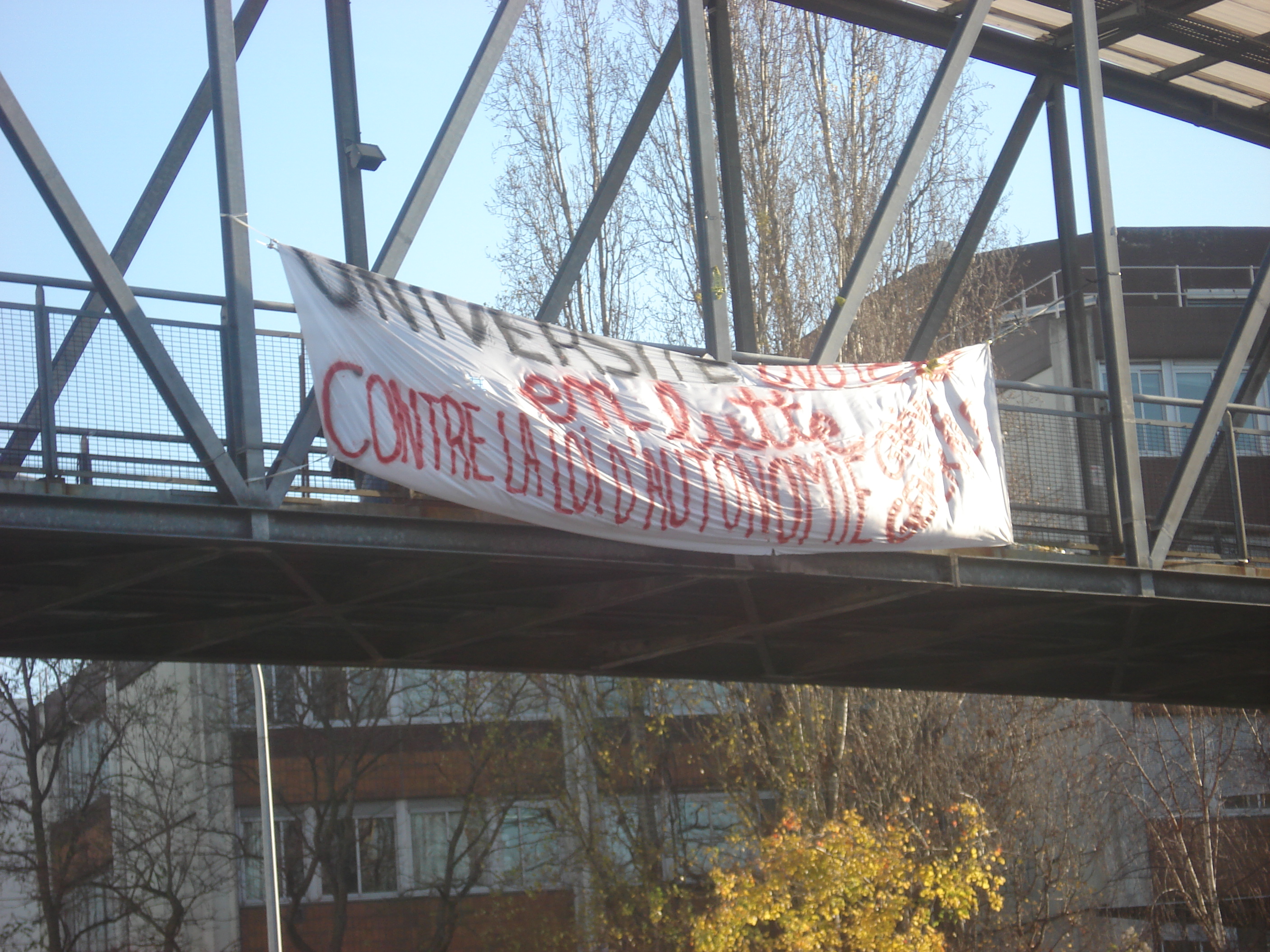
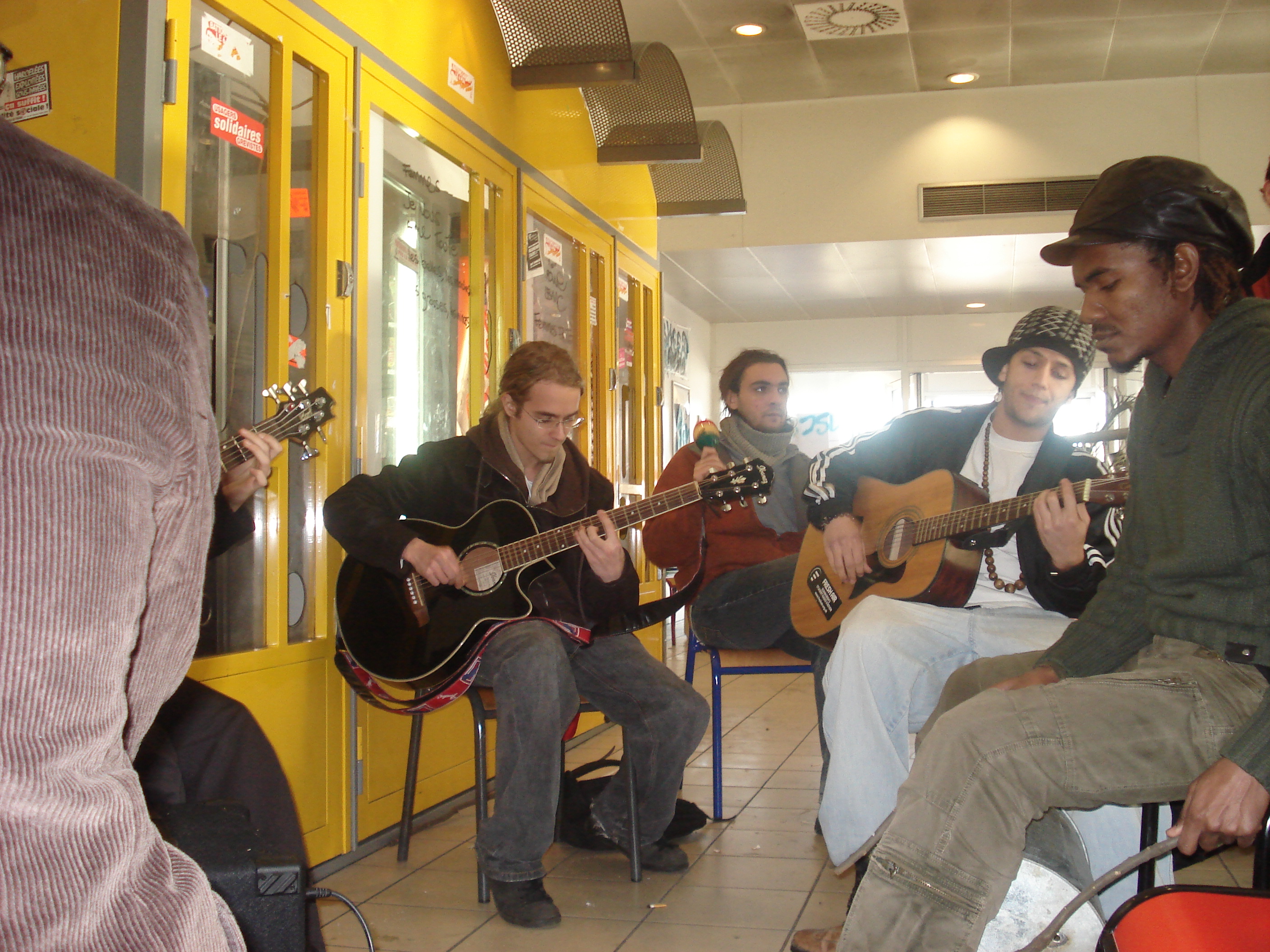
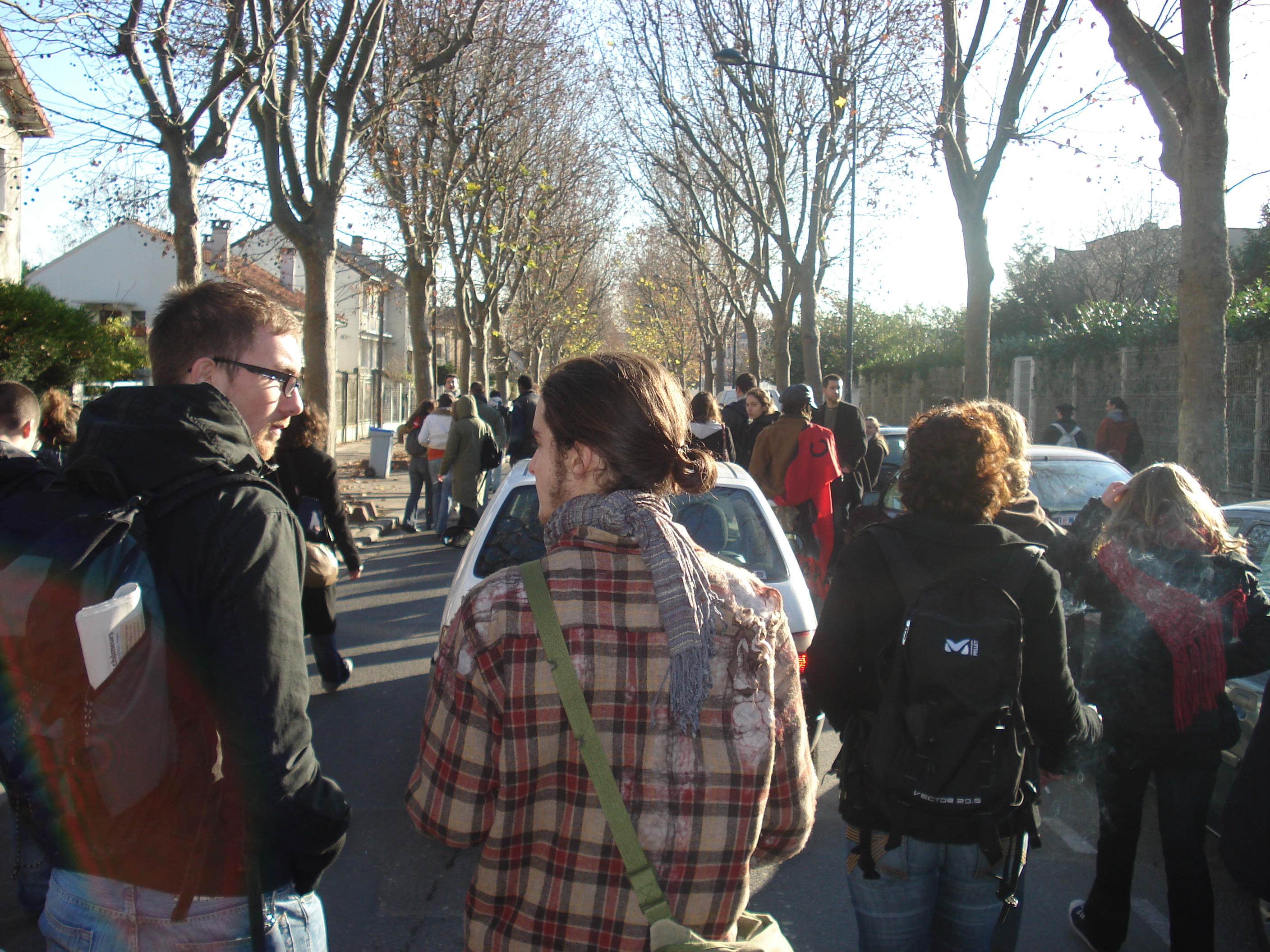
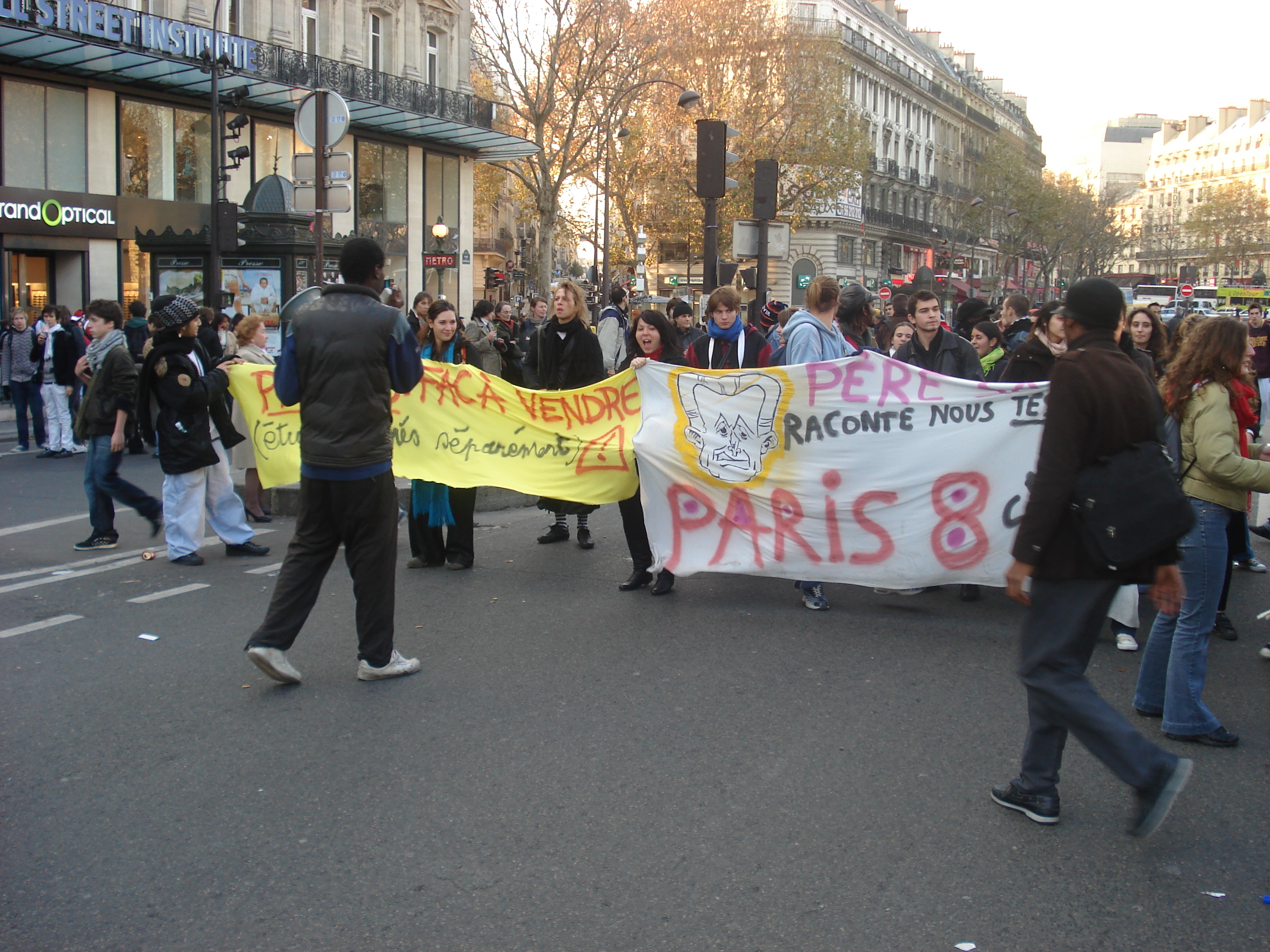
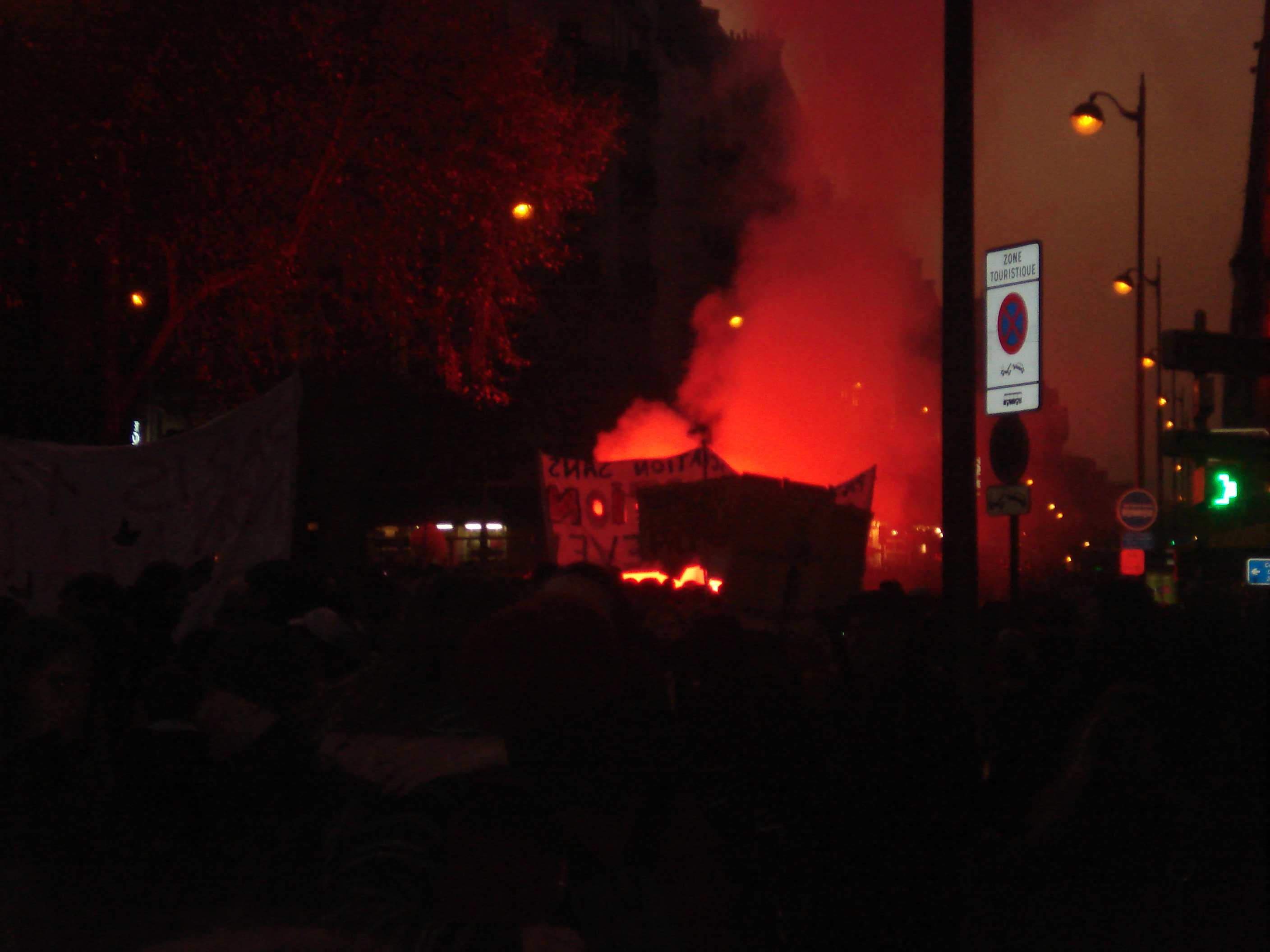
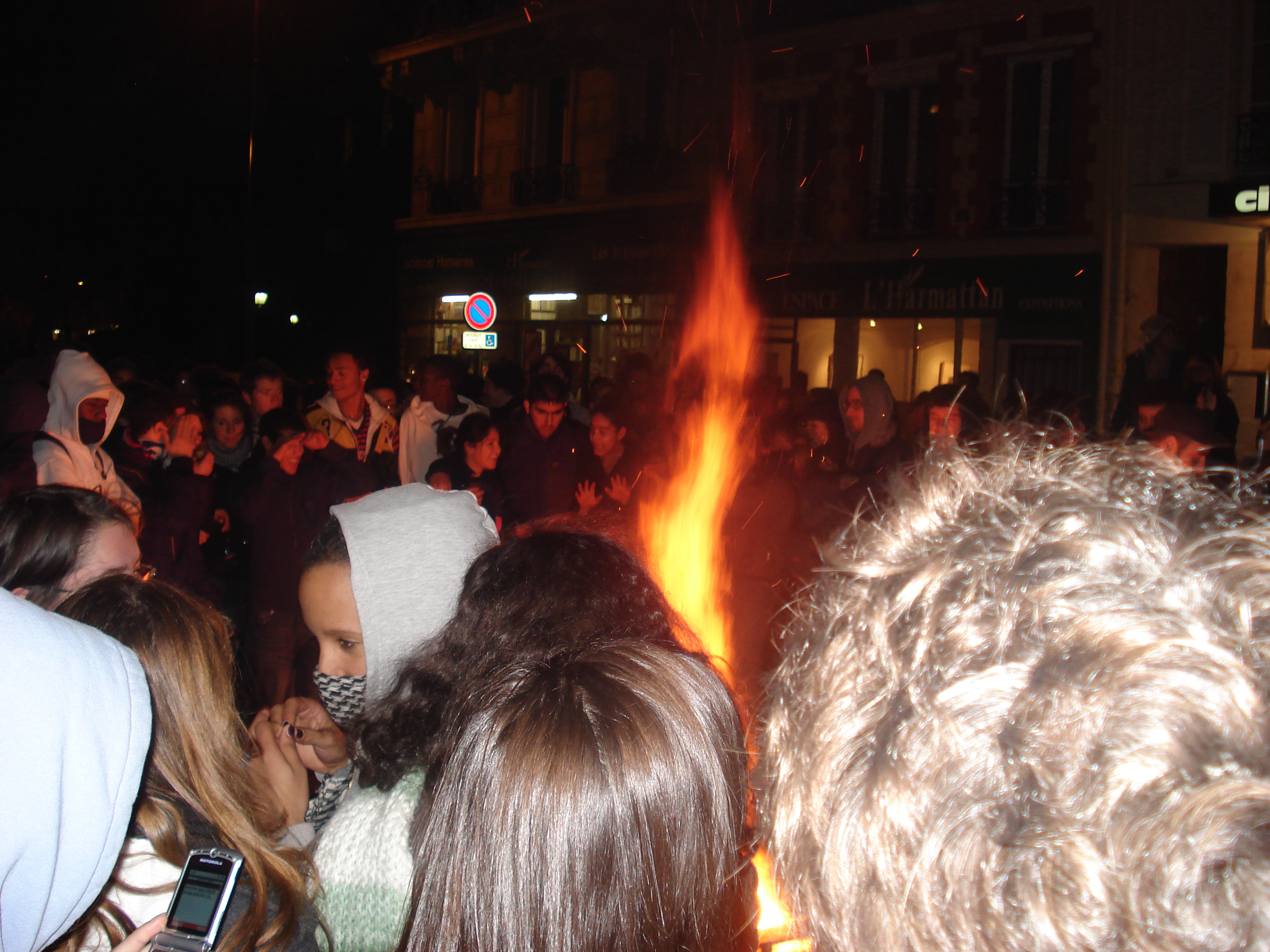
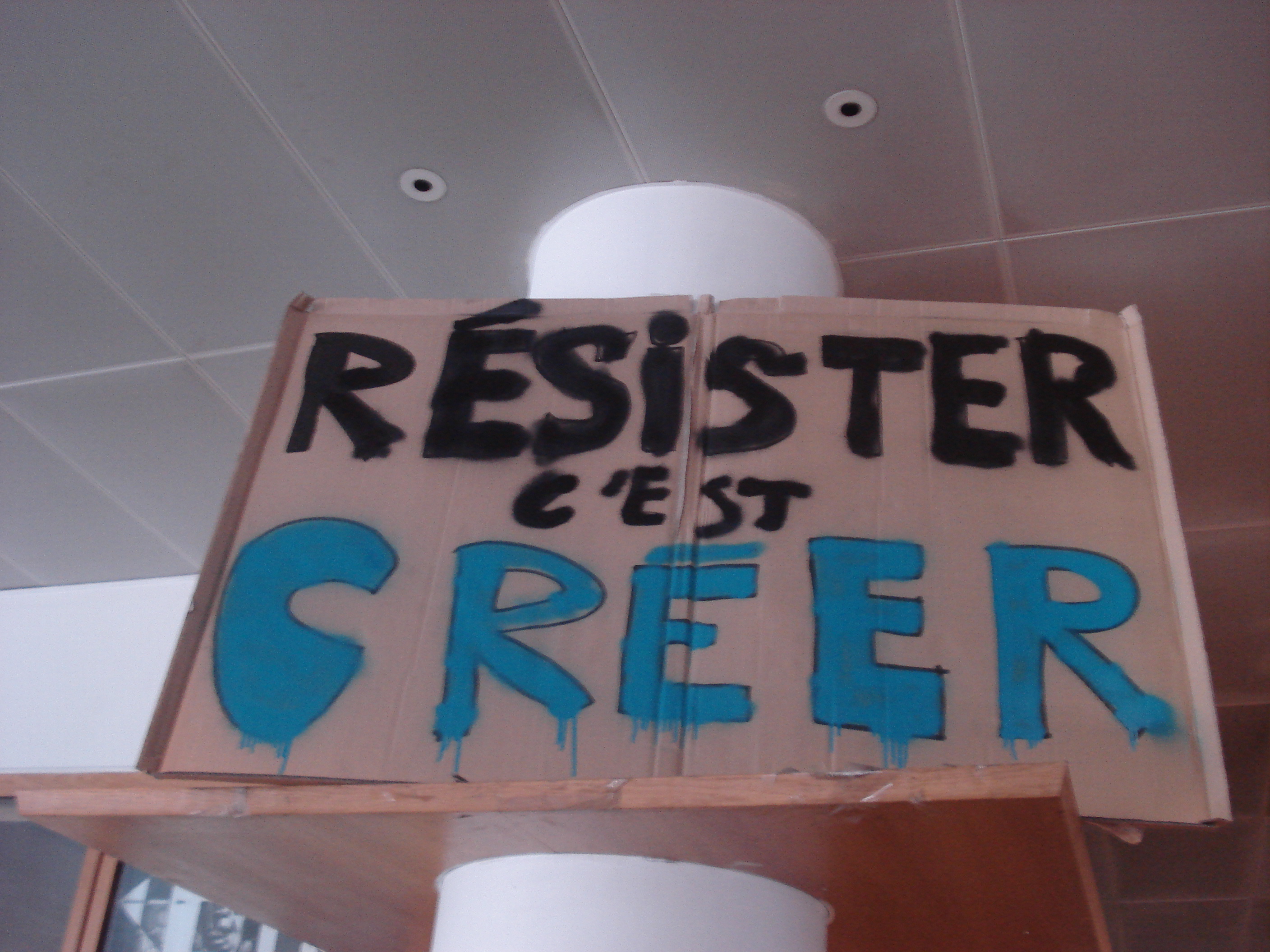
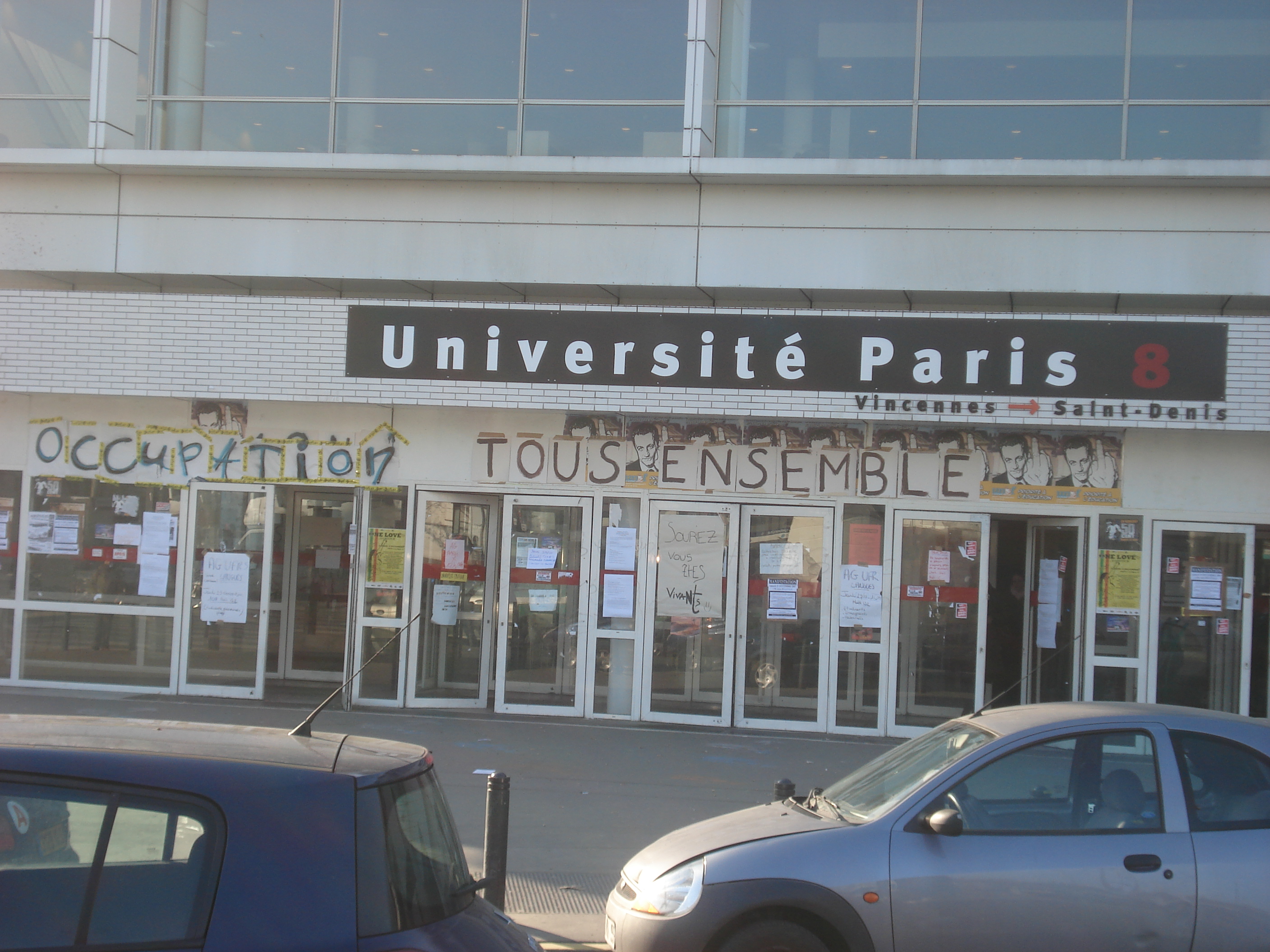
On the Tuesday morning, the four students travelled up to the University for the first time and immediately linked up with a group of students from the action committee who were blockading one of the upper buildings. In the University it is only 30% of the students who are still trying to attend classes despite the decision being taken to strike, occupy the campus and blockade the buildings made at a massive general assembly of the students attended by up to 2000 people. The majority of students are either partaking in the occupation or giving their support to the movement by striking and refusing to attend classes. All day at the university there were alternative lectures and discussions happening on a range of subjects from practical anarchism, tactics and philosophy whilst a large open meeting of 50 students debated on the day-to-day running of the occupation.
In the afternoon, the students of Saint Denis invited the Sussex Students to attend a large demonstration happening in the centre of Paris with them. Firstly though, the students marched across town to the local school with the intentions of liberating it. After brief and unfruitful negotiations with the principal of the school where it was announced that the students would not be allowed access to the school students, a number of people climbed over the school fences and went round classes persuading students to join us on the demonstration. The striking students then squatted a train to the demonstration where we linked up with roughly 5000-10,000 students from around France all marching together in the direction of the National Assembly.
A spokesperson for what was variously referred to as the Federation Anarchiste, Operation Claaaaash or simply the organising committee of the movement took the time to explain briefly how the national campaign was being organised. Dissenting staff and politically active students at universities around France had organised open meetings organised on principles of direct democracy which seemed to be very well attended and conducive to passionate discussion. These meetings were held more than twice weekly and as well as acting as decision making bodies for the individual universities, also elected delegates to a national committee which met weekly to act as a network between all the universities that were involved in the blockades.
There was definitely a high level of solidarity between different universities as evidenced by the fact that students from Nanterre university, the blockade which was violently suppressed by the police, under direct orders from Sarkozy himself, had come to Saint-Denis to gather supporters for their court cases and were extremely well received.
What was perhaps most inspiring about the French movement was the high emphasis placed on the cultural elements that are rightfully recognised in France as necessary for effective mobilisation. The French have a strong historical tradition of this dating back to the revolution of 1789 and which was perhaps given its fullest expression in the Situationist inspired uprising of May 1968. The ideas of the situationists, along with anarcho-syndicalist philosophy, are clearly dominant in Saint-Denis and in the national campaign as a whole.
What the Sussex delegation gained most from the experience was the motivation to attempt to start a similar movement in the UK. The essential ingredients would appear to be there. At universities around the country there are groups of politically radical students who, whether they call themselves anarchists, socialists, Marxists or simply compassionate and informed autonomous individuals, are united in their critique of the university system. The current conditions of university students with regard to the amount of fees demanded of us are generally considered to be unacceptable by the majority of students, and corporate infiltration into the system is widespread and demonstrably detrimental to our intellectual culture, even if this is not talked about as much as it should.
The main obstacles to an effective campaign then are simply a lack of a national network of universities organised along principles of direct democracy, such as that which already exists in France, and which it would be easy to imagine could be established here given enough dedication, as well as what might be called cultural deficiencies. By this I am obviously not trying to imply that there is anything innately superior about French political culture (in fact much of the time it seems needlessly chaotic and unstable), but rather a lack of appreciation for cultural aspects of movements. These can take many forms: organisation of public debates on critical subjects, proliferation of revolutionary chants and slogans and use of music as a tool for creating a positive atmosphere at demonstrations. All of these were strongly in evidence in France and seemed to be the driving forces behind everything else.
Sussex Autonomista